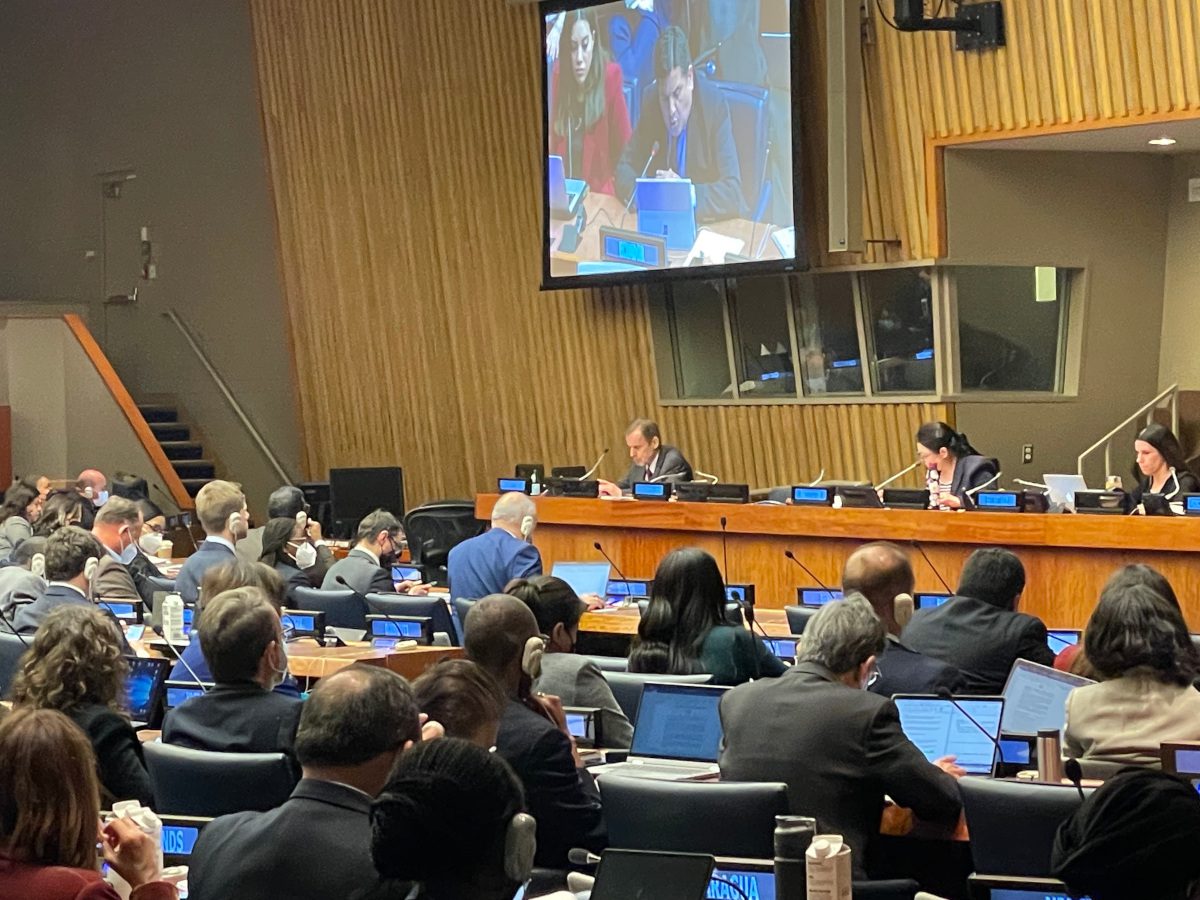
Negotiations for a new UN Treaty to protect two thirds of the planet have ended without conclusion at the UN Headquarters in New York, meaning that a further meeting will be required, the High Seas Alliance reported on 18 March.
The final scheduled negotiation was hoped to conclude a multi-year process to bring protection to marine biodiversity through a new, High Seas Treaty. Many States, including the 48 members of the High Ambition Coalition, have committed to the goal of concluding negotiations in 2022, and will now need to accelerate work in the coming months and extend the negotiations via an additional meeting this year, if they are to deliver on their pledges and the protection needed to bring the ocean back from the brink.
Peggy Kalas, Director of the HSA said “Many governments entered the negotiations with a renewed sense of urgency after a two-year pause due to COVID but we have not reached the Treaty goal yet. All efforts must be devoted in the coming months to secure this long-awaited treaty in 2022; a goal expressed by many governments that committed to the High Ambition Coalition.”
Will McCallum, Head of Oceans for Greenpeace UK said: “Our oceans are in crisis and getting this treaty right is critical. Governments are being judged on the ambitious pledges they have made, and right now they’re falling short: the pace of these discussions is glacial and the lack of agreement on a number of key issues shows that at the end of two weeks of negotiations we are simply not on track for the ultimate goal of protecting at least a third of our global oceans by 2030. Ministers and heads of state need to step up ahead of the next round of negotiations to ensure we land the strong treaty we need in 2022. Anything less is a failure.”
“As the BBNJ-negotiations draw to a close, environmental multilateralism is at a critical junction for our planet. Decision-makers now have a clear opportunity to make meaningful and bold progress in the intersessional towards curbing transboundary pollution and to protect our ocean, an important pillar in fending off the devastating impacts of climate change. We hope governments will rise to the occasion, ensure that the High Seas Treaty is accomplished in the second half of 2022 and not let our planet down.”said Fabienne McLellan, Managing Director at OceanCare.
“Time does not stand still and the urgency to protect our offshore treasures continues. In Latin America we have seen ambition from States like Costa Rica and Chile, we hope others raise their ambition”. Gladys Martínez, Executive Director of AIDA
“It’s a relief that after a two-year hiatus due to the pandemic, the fourth round of negotiations for a long overdue UN Treaty to protect high seas life resumed this month and country delegates were able to meet in person and roll up their sleeves to continue their work. However, progress has been slow with delegates inching closer to agreement on several critical issues. With the recent creation of a High Ambition Coalition, we’d hoped for much more progress in New York. Governments will really need to step up the pace and political will to get a strong treaty over the finish line this year.” Richard Page, Campaigns Director, RISE UP
The negotiations, which began in 2018 after a decade of discussions, can only be concluded through an additional meeting, not previously mandated by the UN General Assembly. The High Seas Alliance is adamant that this must be held in 2022, if States are to meet their own commitment to finalise a High Seas Treaty this year and achieve 30% protection of the ocean by 2030. Marine protected areas, including highly and fully protected areas in the High Seas are not possible without the new Treaty in place.
The High Seas Alliance said the enthusiasm to achieve a robust Treaty was evident among many of the negotiators with higher levels of engagement and flexibility than has been the case to date. Delegates worked with draft text and there appeared to be a strong commitment to conclude the process but it will take intersessional work and a much faster pace to reach the finish line in 2022.
Senior leaders from Ocean groups signed a joint letter to world governments calling for an expedited approach to achieve a robust Treaty by the end of 2022.
The ocean is failing fast under multiple onslaughts, and protecting its biodiversity is urgently needed to help protect the ocean and humanity from the worst impacts of climate change.







